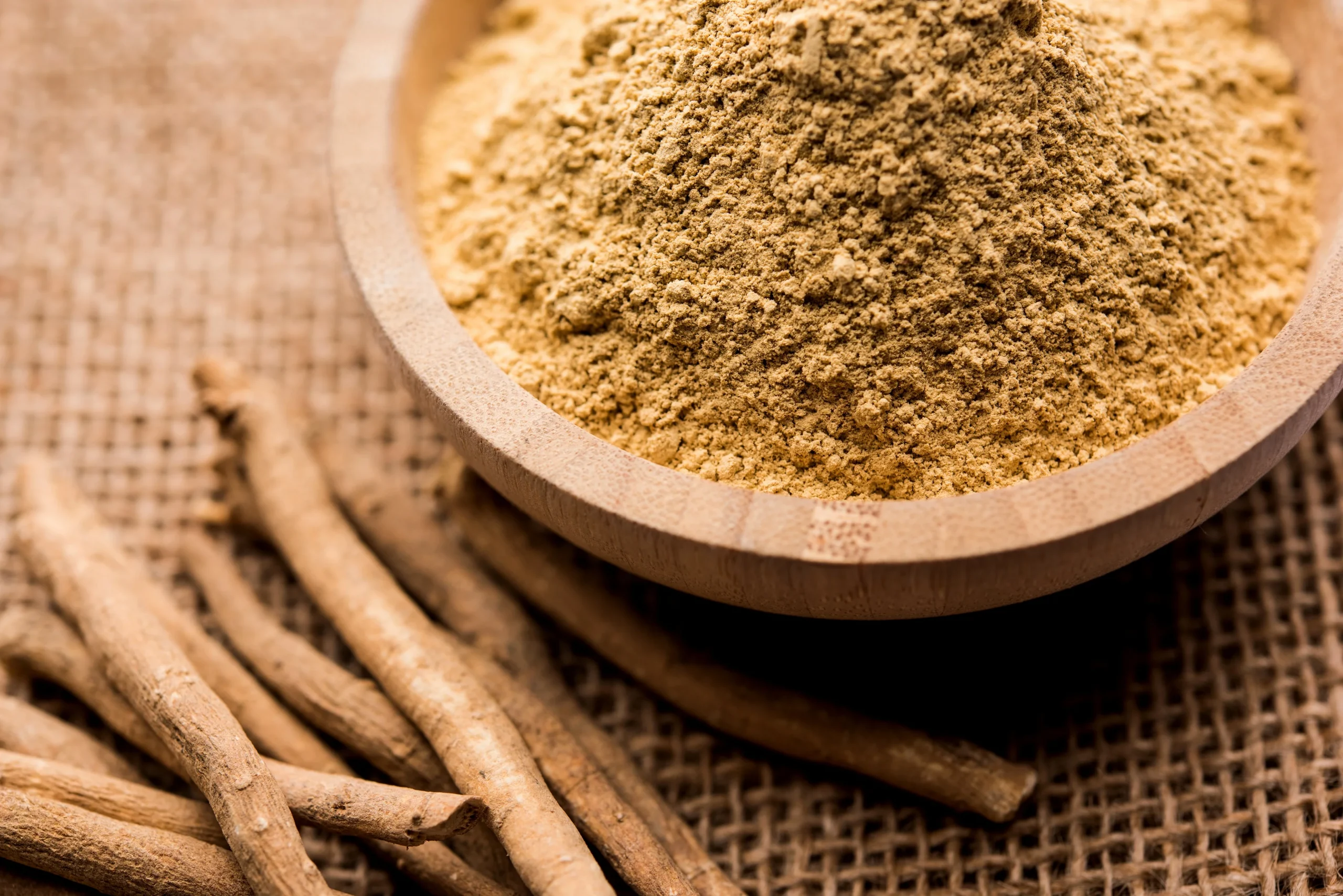Ashwagandha Extract (KSM-66®): Unlock Peak Performance and Inner Calm

Ashwagandha (Withania somnifera) is an adaptogenic herb traditionally used in Ayurvedic medicine to promote overall wellness, reduce stress, and enhance physical and mental performance. It is rich in bioactive compounds, including withanolides, which contribute to its numerous health benefits. Modern research supports its role in stress reduction, cognitive function, hormonal balance, and immune system enhancement.
Health Benefits of Ashwagandha Extract
- Reduces Stress and Anxiety
Ashwagandha is widely known for its adaptogenic properties, helping the body resist stress by regulating cortisol levels. Studies have shown that supplementation significantly reduces stress and anxiety symptoms by modulating the hypothalamic-pituitary-adrenal (HPA) axis. Clinical trials demonstrate that daily use can lower cortisol levels by up to 30%, leading to improved mood and overall emotional well-being. - Enhances Cognitive Function and Memory
Ashwagandha supports brain health by promoting neurogenesis and protecting against oxidative stress. Research indicates that it improves memory, attention, and cognitive function, particularly in individuals experiencing cognitive decline or high-stress conditions. Studies have also highlighted its potential to reduce symptoms of neurodegenerative disorders like Alzheimer’s and Parkinson’s disease. - Supports Hormonal Balance and Reproductive Health
Ashwagandha plays a crucial role in balancing hormones for both men and women. In men, it enhances testosterone levels, improves sperm quality, and supports reproductive health. Clinical studies have shown increased sperm count and motility in men who supplemented with ashwagandha. In women, it aids in regulating menstrual cycles, reducing symptoms of polycystic ovary syndrome (PCOS), and alleviating menopausal discomfort. - Boosts Energy and Physical Performance
Ashwagandha is known to enhance endurance, muscle strength, and recovery. It improves oxygen utilization during physical activity, leading to increased stamina and reduced fatigue. Athletes and fitness enthusiasts benefit from its ability to enhance muscle mass and reduce exercise-induced muscle damage. Studies confirm that individuals supplementing with ashwagandha show significant improvements in strength, power, and recovery time. - Strengthens the Immune System
With its potent anti-inflammatory and antioxidant properties, ashwagandha enhances immune function by increasing white blood cell activity and reducing inflammation. It helps the body defend against infections and supports faster recovery from illness. Research also suggests its potential in reducing markers of chronic inflammation, which is linked to various diseases. - Promotes Heart Health and Regulates Blood Sugar
Ashwagandha has been shown to lower blood sugar levels, reduce bad cholesterol (LDL), and support heart health by improving circulation and reducing stress-related hypertension. Clinical evidence suggests that it enhances insulin sensitivity, making it beneficial for individuals with diabetes or metabolic syndrome.
Scientific Support
- Stress & Anxiety Reduction: Decreases cortisol levels and improves emotional resilience (Lopresti et al., 2019).
- Cognitive Function: Enhances memory, focus, and neuroprotection (Leonard et al., 2024).
- Hormonal Balance & Reproductive Health: Increases testosterone and sperm quality (Lopresti et al., 2019).
- Physical Performance: Improves strength, endurance, and recovery (Bonilla et al., 2021).
- Immune Function: Strengthens immune response and reduces inflammation (Tharakan et al., 2021).
- Heart Health & Blood Sugar Regulation: Lowers cholesterol and supports metabolic health (Mikulska et al, 2023).”
